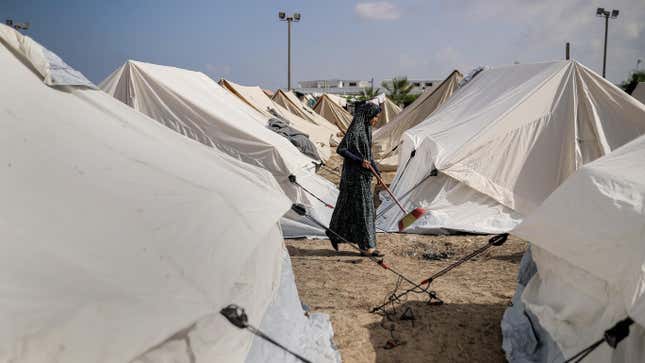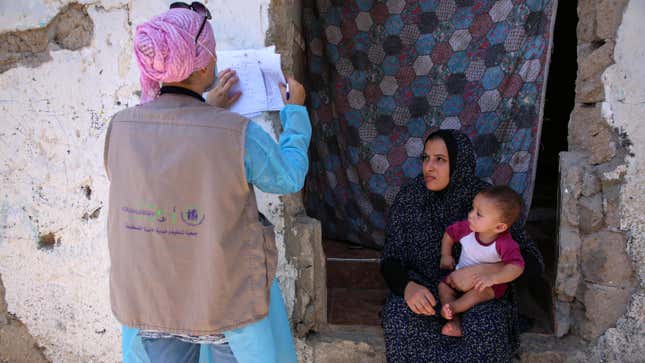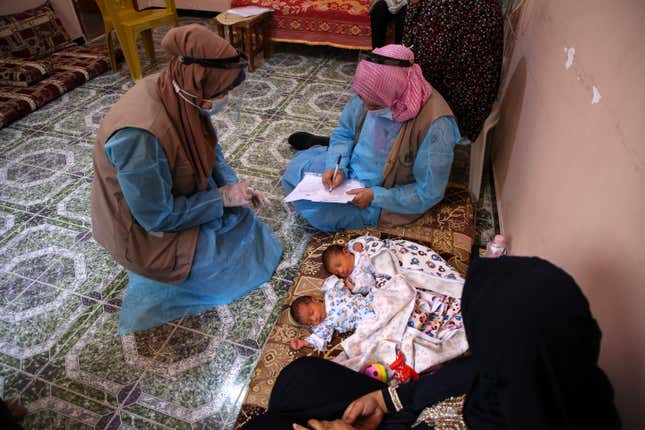Pregnant Women in Labor in Gaza Are ‘Unable’ to Get Care, Says Palestinian NGO Head
The Palestinian Family Planning & Protection Association's only family planning center was recently destroyed, its executive director told Jezebel.
Entertainment

Ammal Awadallah hasn’t heard much from Wafa Abu Hasheish, a healthcare worker in Gaza, lately. The executive director of the Palestinian Family Planning and Protection Association (PFPPA), who’s currently based in Jerusalem, told Jezebel the increasingly concerning silence from Hasheish could stem from any number of things—not the least of which includes that PFPPA’s only service delivery point was destroyed on October 8 when an Israeli airstrike hit the building next to it. The facility is the organization’s only center in Gaza and its destruction has cut off access to life-saving family planning resources for thousands of pregnant people in Gaza.
“We don’t know what’s going to happen to these women and their newborn babies. Our center is unusable and our options to provide referrals to hospitals are decreasing by the hour,” Awadallah said in a press release on October 12. “I can’t stress enough how dire the situation is and how desperately we need humanitarian aid to be allowed into Gaza.”
Through her limited contact with Hasheish, Awadallah has learned pregnant women across Gaza are “unable to reach health centers when going into labor or in need of any kind of medical assistance,” and there are almost no safe places to shelter from bombs, let alone “safe places to give birth.” (It’s estimated that anywhere from 50,000 to 84,000 women in Gaza are currently pregnant.) PFPPA’s service center—which is overseen by the International Planned Parenthood Federation (IPPF)—offered family planning services, counseling, lab tests, infertility services, and maternal, antenatal, and postnatal care.
-

-

-

-

-

-

-

-

-

-

-

-

-

-

-

-

-

-

-

-

-

-

-

-

-

-

-

-

-

-

-

-

-

-

-

-

-

-

-

-










































